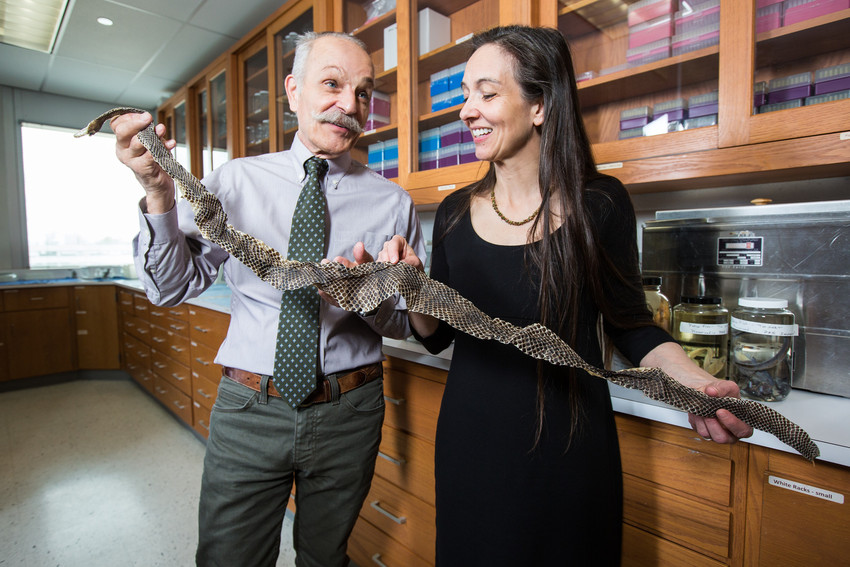
FAYETTEVILLE, Ark. – A combination of drought and fire has put the Arizona black rattlesnake on an “extinction trajectory,” according to University of Arkansas researchers.
The research team, led by U of A biologists Marlis Douglas and Michael Douglas, published its findings in the journal Royal Society Open Science.
The researchers recommend that the rattlesnake be designated as “threatened” under the federal Endangered Species Act. This would allow the U.S. Fish and Wildlife Service to develop regulatory protections adjusted to the needs of the species.
The Arizona black rattlesnake is found at higher elevations in Arizona and western New Mexico. The researchers collected DNA from 118 specimens of the rattlesnake and analyzed its genetic structure. They found both a shrinking population and a reduction in its movement across an already limited range.
“Wildfire, which is occurring more frequently due to drought in western North America, has greatly reduced the forest habitat within which this snake lives,” said Michael Douglas, professor of biological sciences and Twenty-First Century Chair in Global Change Biology.
The forested area of the Colorado Plateau has shrunk by 27 percent in the last 13 years. The researchers recommend that the plateau should be promoted as an example of ecosystem vulnerability.
“The rattlesnake is an apex predator so if it isn’t doing well it is often an indication that other levels of the ecosystem are not doing well either,” said Marlis Douglas, associate professor of biological sciences and Bruker Chair of Life Sciences.
The study’s co-authors include Mark A. Davis, research scientist at the Illinois Natural History Survey, part of the Prairie Research Institute at the University of Illinois at Urbana-Champaign; Hans-Werner Herrmann, research scientist at the University of Arizona; Melissa M. Amarello and Jeffrey J. Smith, graduate students at Arizona State University; Gordon W. Schuett, adjunct professor, Georgia State University; and Andrew T. Holycross, professor, Mesa Community College in Arizona.
About the University of Arkansas: The University of Arkansas provides an internationally competitive education for undergraduate and graduate students in more than 200 academic programs. The university contributes new knowledge, economic development, basic and applied research, and creative activity while also providing service to academic and professional disciplines. The Carnegie Foundation classifies the University of Arkansas among only 2 percent of universities in America that have the highest level of research activity. U.S. News & World Report ranks the University of Arkansas among its top American public research universities. Founded in 1871, the University of Arkansas comprises 10 colleges and schools and maintains a low student-to-faculty ratio that promotes personal attention and close mentoring.
Contacts
Michael Douglas, professor, Department of Biological Sciences
J. William Fulbright College of Arts and Sciences
479-575-6343, med1@uark.edu
Marlis Douglas, associate professor, Department of Biological Sciences
J. William Fulbright College of Arts and Sciences
479-575-4176, mrd1@uark.edu
Chris Branam, research communications writer/editor
University Relations
479-575-4737, cwbranam@uark.edu